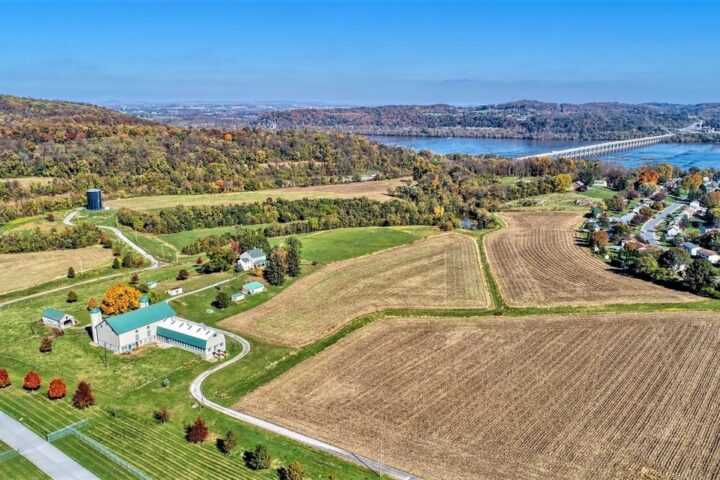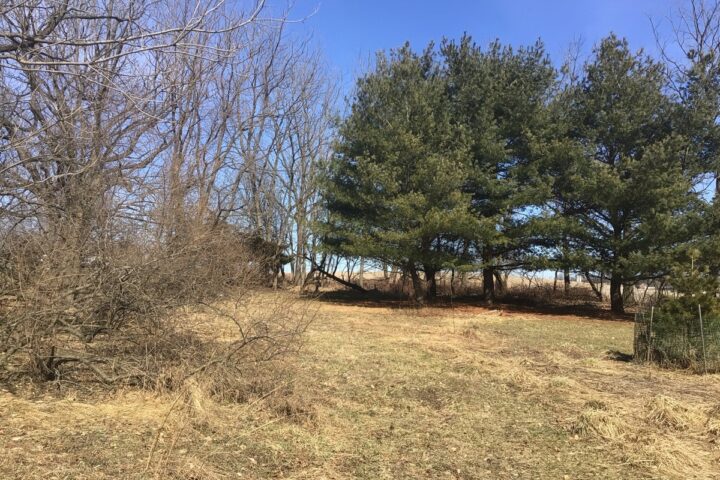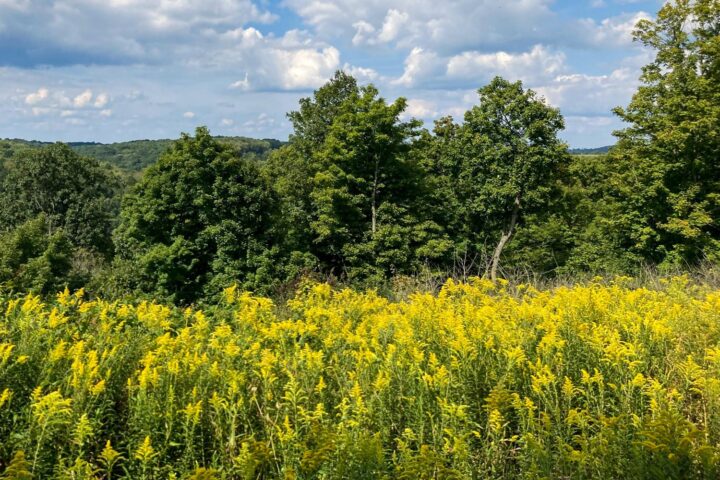
Ask Barb Wolf about farming, and she goes directly to the heart of the matter: “It’s what we do, and who we are.”
The Wolf family has been farming their 142 acres in Cumberland Township for 98 years, and three generations. Phil and Barb are full-time farmers, and they can’t imagine a future in which their hay and wheat fields are paved over to make room for a housing development. So they recently chose to ensure that their family is able to farm the land for generations to come—by preserving their farm with the help of the Land Conservancy of Adams County.
Like the Wolfs, Sarah Kipp, the conservancy’s land conservation coordinator, was among many who recognized the importance of preserving the farm. “This farm adjoins two other properties that we’ve preserved,” she said. “It has almost a mile of road frontage, and it’s visible from parts of the Gettysburg National Military Park. So, understandably, we were thrilled about the opportunity to protect such a scenic working farm that contributes to the agricultural and historic landscape around Gettysburg. In fact, its importance is also shown by how many partners contributed to purchase the easement—the USDA’s Agricultural Conservation Easement Program, the Adams County Office of Planning and Development, and the American Battlefield Trust all helped make this project possible.”
The American Battlefield Trust was intrigued by the Wolf farm preservation project in part because the farm played an important part of the Battle of Gettysburg, though it was owned by the Plank family at the time. The farm was the site of the pivotal countermarch by Confederate troops under General Longstreet on the second day of the battle, a march that greatly influenced the timing and results of the action on the southern flank. The farm was later used as a field hospital, with wounded enlisted men being treated in the barn and officers treated in the house.




